 Questions Raised over Dicalcium Phosphate (DCP) Plant Expansion
04. 18. 2018
#Feed industry
Questions Raised over Dicalcium Phosphate (DCP) Plant Expansion
04. 18. 2018
#Feed industry

News of an imminent expansion of dicalcium phosphate (DCP) production at an Aliphos plant in northern France is sparking debate over what is the best feed additive for increasing phosphorous and calcium intake and absorption in farm animal diets. For while DCP has typically been the ‘go-to’ feed additive in this sector, monocalcium phosphate (MCP) use has been steadily increasing as studies continue to prove it gives better results. For example, a 2013 study by the Polish Academy of Sciences, concluded that, “the overall best results were obtained in chickens fed diets containing pure hydrated monocalcium phosphate.”
Which leaves the question, “Would the plant expansion not have been improved by going the extra step to produce MCP?”
News of the Aliphos’s project nearing completion was released last week, when ICIS reported on the company’s ambition to ‘take back’ its leader position in the European dicalcium phosphate (DCP) market. By spending €75 million to expand production to 220,000 tonne/year at the Dunkirk plant, the company hopes not only to dominate local markets but also increase exports overseas.
However, questions soon began to be asked when Aliphos’s C.O.O., John Gustin, began to talk of the advantages offered by the brand named DCP product Aliphos Dical +. In the interview he stated that, “The current DCP is anhydrous and our Dical+ is 82% digestible while standard product is around 55% digestible.”
This immediately brought comparisons with monocalcium phosphate (MCP) which claims an 84% digestible P content. Furthermore, the total phosphorus content in MCP is also likely to be higher (at 22.6% content), compared to the less than 20% content of most DCP products.
The case for using phosphate additives in feed remains quite clear cut, with clear evidence being provided that animals do not generally receive sufficient phosphate from either natural grazing or standard animal feed alone.
This is because the phosphorus content in vegetable feeds reaches only 30% of what is essentially needed, and even then, is typically only half absorbed. Farm animals with a diet that is deficient in calcium and phosphorus often suffer the following health problems:
- restricted growth
- deterioration of appetite
- disruption of the bone mineralization process
- decreased productivity, followed by reduced consumption and digestion of feed; digestive disorders, moulting, and feather/hair loss
- a slowdown or complete cessation of growth
While the science behind the two products will continue to be analysed over the coming years, and livestock farmers will always have to factor in the chemical composition of their bulk feed, the data does seem to suggest that MCP has a greater positive impact as a feed additive than DCP.
Most likely, the Aliphos’s facility expansion will be a success as feed additive use is expected to grow considerably over the coming decade. However, some feed industry experts are left wondering if production of monocalcium phosphate (MCP) would have been a more effective choice.
Both AG CHEMI GROUP and Aliphos are suppliers of MCP.
AG CHEMI GROUP is a supplier of industrial feed additives, including feed grade monocalcium phosphate or MCP.
MCP has the following features and advantages:
- neutralizes the harmful effects of a number of elements - sodium, potassium, magnesium, and others
- ensures the proper functioning of the heart, nervous and muscular systems, as well as many other organs
- improves digestion, by increasing the activity of digestive enzymes
- strengthens the immune system
- participates in the relocation of lipids, protein biosynthesis, and the cleansing of the intestine from harmful substances
- improves the efficiency of carbohydrate, protein, fat, mineral, and energy metabolism in the body
- does not contain heavy metal impurities
- does not have a destructive effect on enzymes and vitamins, nor does it block the effect of proteins and the amino acids
- contains the highest degree of digestibility (bioavailability)
- a minimal amount of phosphorus is released in animal waste, limiting environmental pollution
- contains a minimal amount of mineral mixture for maximum digestibility
MCP – Animal Feed’s Most Effective Growth Supplement
MCP acts as an inorganic phosphate supplement and plays an important role in the animal feed industry. It provides animals with calcium and phosphorus, which helps to improve an animal's organism, metabolism, and the functioning of nervous, immune and reproductive systems thereby increasing productivity.
Technical aspects of Monocalcium phosphate produced by the Phosagro group:
Production
PJSC PhosAgro
https://www.phosagro.com

The most important quality indicators
| Indicator | Value |
|---|---|
| Total phosphorus (in terms of P) | min. 22.3% |
| Total phosphorus soluble in 2% citric acid | min. 95% |
| Mass fraction of calcium | min. 15% |
| Residue on a sieve with a cell diameter | > 3 mm - 0% 0,2 - 2 mm - 80% ≤ 0,2 mm - max. 20% |
| Light gray fine-grained flowable powder | granulated |
Packing
- 800, 1000 kg BB
- silo truck (pneumatic tank)
Based on recent studies, phosphorus from monocalcium phosphate is more useful for livestock and poultry than other inorganic sources, as the percentage digested is much higher. The addition of monocalcium phosphate to feed mixtures provides an increase in live weight of livestock and poultry by 5-12% higher in comparison with other types of feed phosphates. Monocalcium phosphate can be safely used for feed without any harmful consequences. Adding monocalcium phosphate to the diet of your livestock and poultry will increase their productivity, and bring excellent biological, energy, and economic benefits.
Photo credit: Sardelis, DunkerquePromotions, Juta & Aliphos
